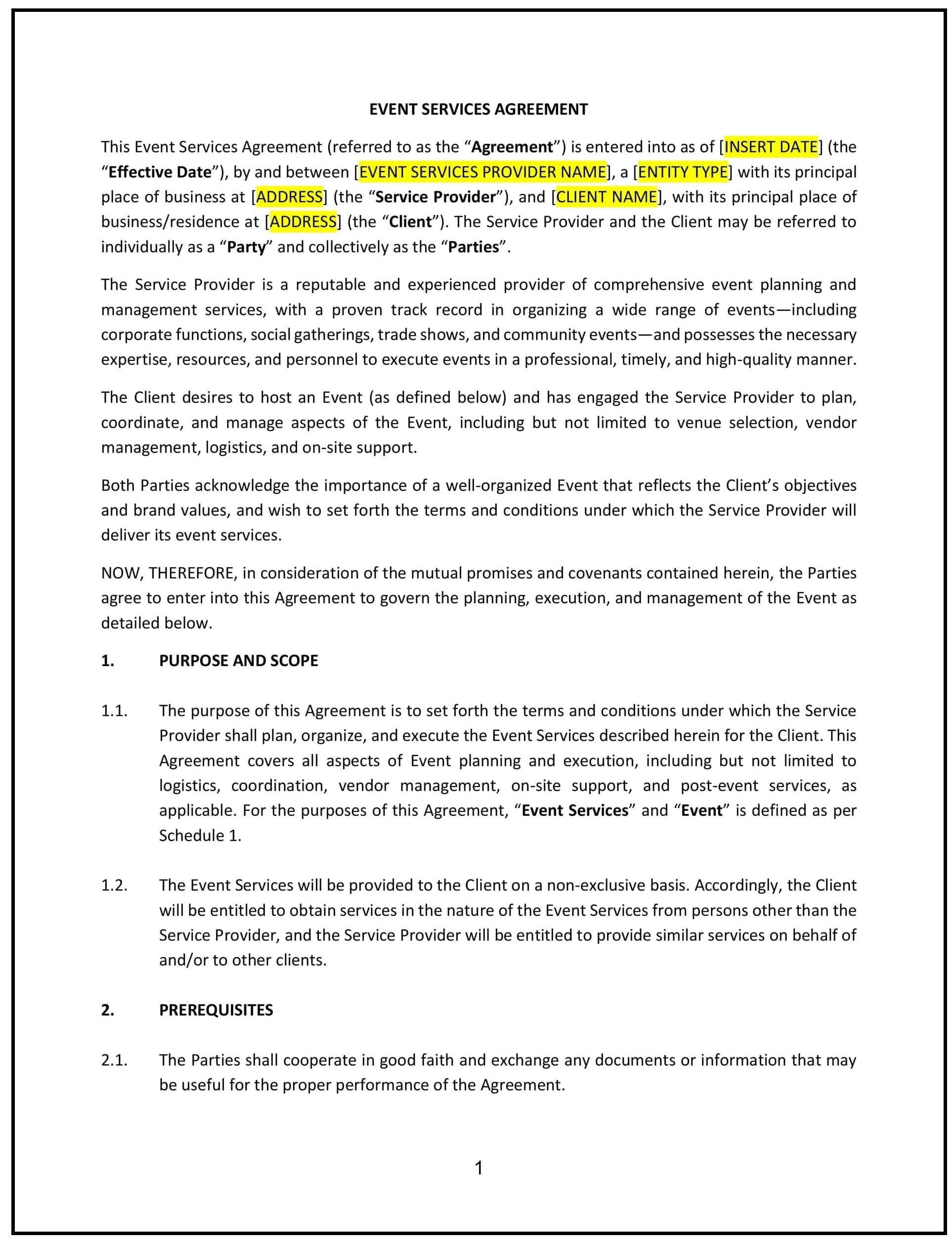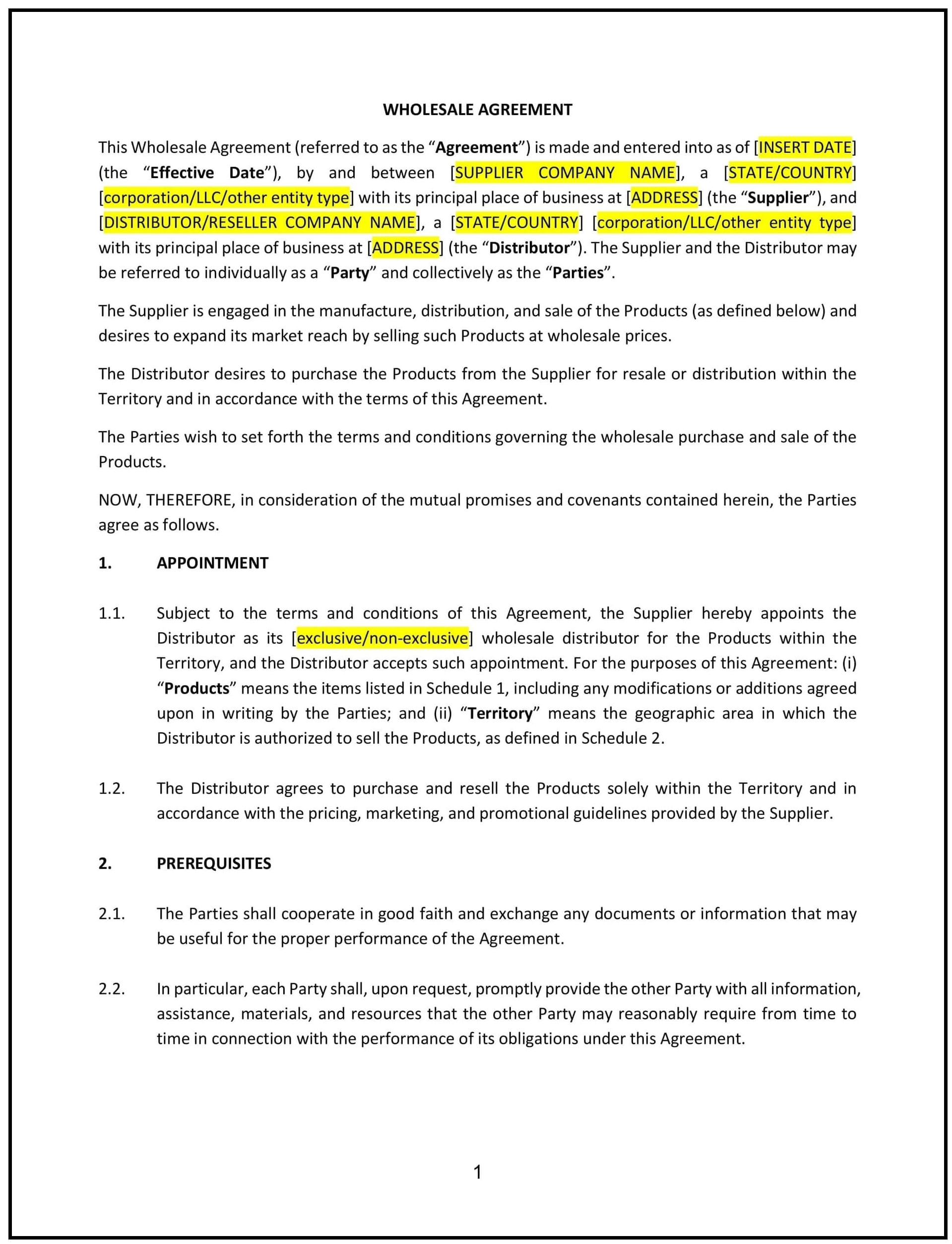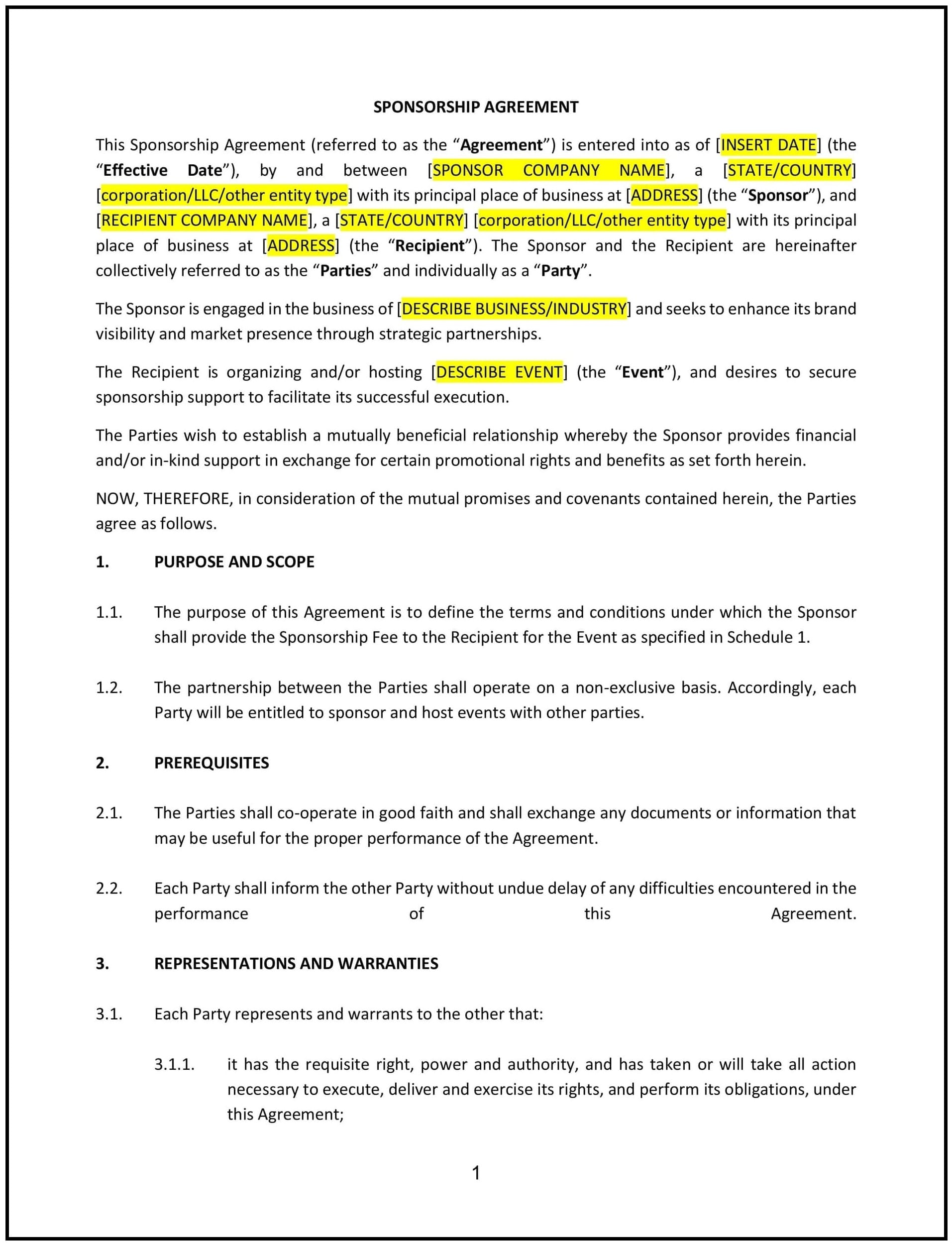Business Development Agreement (Alabama): Free template
Business Development Agreement (Alabama)
A Business Development Agreement is a legally binding contract between two or more parties that outlines the terms and conditions under which one party will assist the other in expanding its business operations, increasing revenue, or entering new markets. In Alabama, these agreements are commonly used in industries such as technology, manufacturing, healthcare, agriculture, and retail to ensure clarity on goals, deliverables, compensation, and performance metrics.
For instance, a Birmingham-based tech startup might use a Business Development Agreement to formalize its collaboration with a Huntsville-based consultant to expand its market presence in the aerospace industry. A well-drafted agreement minimizes risks, ensures accountability, and aligns with Alabama’s legal framework.
Tips for drafting and maintaining a Business Development Agreement in Alabama
- Define the Scope of Services: Clearly outline the services to be provided by the business development professional or firm. Specify whether the services include lead generation, market research, partnership development, or strategic planning. Example: “Party A agrees to provide business development services for Party B, including identifying potential clients, negotiating partnerships, and developing market entry strategies. The term of this agreement will be 12 months, starting on January 1, 2024.”
- Specify Performance Metrics and KPIs: Define measurable goals and key performance indicators (KPIs) to evaluate the success of the business development efforts. Include benchmarks for metrics such as new client acquisitions, revenue growth, or partnership deals closed. Example: “The success of Party A’s services will be measured by achieving a 20% increase in new client acquisitions and a 15% increase in annual revenue within the first year.”
- Outline Compensation Terms: Detail how the business development professional will be compensated, including fixed fees, commission-based models, or performance bonuses. Include payment schedules, invoicing procedures, late payment penalties, and any additional costs. Example: “Party B agrees to pay Party A a monthly retainer fee of $5,000, plus a commission of 10% of net revenue generated from new clients introduced by Party A. Payments will be made within 15 days of receiving an invoice.”
- Address Reporting and Auditing Requirements: Specify the frequency and format of performance reports, as well as the right of the client to audit the service provider’s records to verify accuracy. Example: “Party A will provide Party B with a monthly performance report detailing new client acquisitions, revenue generated, and partnership progress. Party B reserves the right to conduct an annual audit of Party A’s financial records related to the agreement.”
- Clarify Intellectual Property Rights: Define ownership of any intellectual property created during the engagement. Specify whether intellectual property rights are shared, retained by one party, or licensed. Example: “All intellectual property developed during the term of this agreement remains the exclusive property of Party B. Party A is granted a non-exclusive, non-transferable license to use the intellectual property solely for purposes related to this agreement.”
- Protect Confidentiality and Data Security: Safeguard sensitive information shared during the partnership by including confidentiality clauses that align with Alabama’s trade secret and privacy laws. Address data security measures to protect proprietary data. Example: “Both parties agree to maintain the confidentiality of all proprietary information disclosed during the term of this agreement and for a period of five years thereafter. Each party will implement industry-standard encryption and access controls to protect shared data.”
- Set Termination Provisions: Define the circumstances under which the agreement can be terminated, such as breach of terms, mutual consent, or expiration of the agreement. Include steps for transitioning responsibilities if the agreement ends. Example: “Either party may terminate this agreement with 30 days’ written notice if the other party fails to comply with the terms outlined herein. Upon termination, Party A will deliver all completed work and documentation to Party B.”
- Include Dispute Resolution Mechanisms: Specify how disputes will be resolved, whether through negotiation, mediation, arbitration, or litigation. Include jurisdiction and governing law clauses to streamline the process. Example: “Any disputes arising under this agreement shall be resolved through binding arbitration in accordance with the rules of the American Arbitration Association. The arbitration will take place in Jefferson County, Alabama, and the decision will be final and binding.”
- Align with Alabama-Specific Laws: Ensure the agreement adheres to Alabama’s contract laws, including the Alabama Uniform Commercial Code (UCC) for transactions involving goods. Additionally, address alignment with consumer protection statutes and intellectual property regulations. Example: “This agreement shall be governed by and construed in accordance with the laws of the State of Alabama. Both parties agree to adhere to all applicable state and federal laws, including intellectual property and consumer protection regulations.”
- Specify Warranties and Disclaimers: Include any warranties provided by the service provider, such as performance guarantees, as well as disclaimers for issues outside their control. Example: “Party A warrants that all business development services will be performed in a professional manner. However, Party A disclaims any liability for external factors such as market conditions, regulatory changes, or competitor actions.”
Frequently asked questions (FAQs)
Q: Can a Business Development Agreement include clauses specific to Alabama’s agricultural or manufacturing industries?
A: Yes, Business Development Agreements in Alabama can include industry-specific clauses, especially if the engagement relates to local sectors such as agricultural expansion, manufacturing partnerships, or supply chain optimization. For example, a Mobile-based consultant might create a strategy to help a farmer expand into organic produce markets.
Q: What happens if the business development professional fails to meet performance metrics in the agreement?
A: If the professional fails to meet performance metrics, the agreement should specify remedies such as reduced compensation, termination of the agreement, or renegotiation of terms. Including clear performance benchmarks helps avoid disputes.
Q: Are there unique tax considerations for Business Development Agreements in Alabama?
A: Revenue generated from Business Development Agreements may be subject to Alabama’s state income tax and sales tax, depending on the nature of the transaction. Consulting a tax professional ensures compliance with all applicable tax laws.
Q: Can a Business Development Agreement in Alabama include provisions for remote work arrangements?
A: Yes, a Business Development Agreement can include remote work provisions, but it should clearly define expectations for communication, deliverables, and deadlines to ensure productivity and accountability.
Q: How can a Business Development Agreement address potential delays caused by external factors, such as economic downturns or regulatory changes?
A: A Business Development Agreement can include a clause addressing unforeseen changes in external factors, such as economic downturns or regulatory updates. This clause should outline how such changes will be managed, including adjustments to timelines, budgets, or performance metrics to mitigate their impact.
This article contains general legal information and does not contain legal advice. Cobrief is not a law firm or a substitute for an attorney or law firm. The law is complex and changes often. For legal advice, please ask a lawyer.


